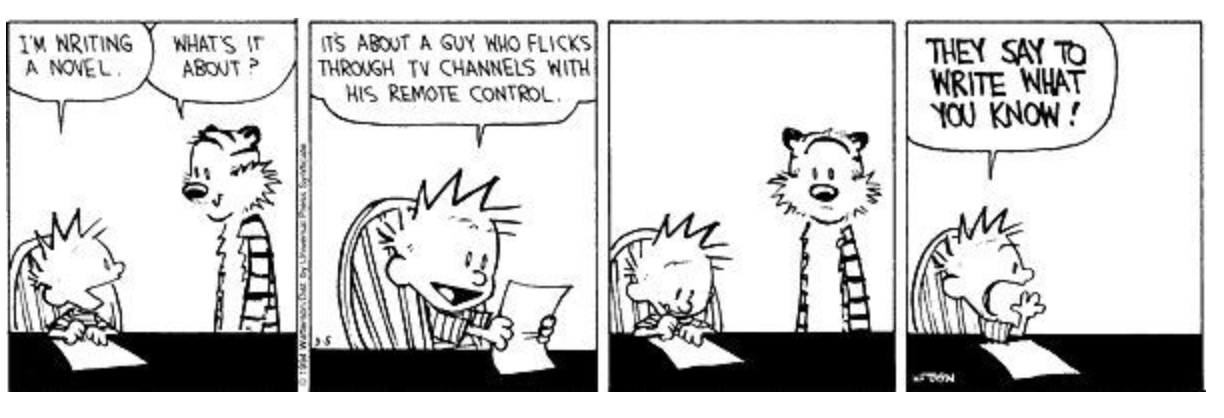
I took the comic above from All About Writing's post "Write what you KNOW? Write what you DON'T Know". It's amazing to me how often I think of a great idea for a post, only to realize someone else came up with almost the same title several years earlier. Fortunately, in this case, author Michelle Monet's advice has nothing to do with the point I want to make in this final post of my year of reading and writing about romance novels. (To be clear, while the 2021 New Year's resolution ends in two days, my desire to read, write about, and write romance novels persists.)
To give writing the authenticity it needs to capture and hold a reader's attention, the details have to ring true. The only way to craft such details is to know the topic. Obviously, for many subjects, writers have three choices to gain a deep understanding:
- They can have first-hand experience
- They can research or
- They can imagine a relevant universe
However, none of these approaches will work to create more diversity in literature. I cannot have first-hand knowledge of being anyone other than a my-age, my-race, my-gender, my-sexuality, my-ability, my-religion, my-hometown, my-experiences person. All the research in the world can't give me a first-hand experience of being someone else. And I'm not interested in writing fantasy set in a universe where people's personal identities don't matter. I write about our world, and in our world, identity matters.
Clearly, the publishing industry needs to print more books by #ownvoices authors. At the same time, authors who are, like me, in represented groups, need to craft diverse characters. If every character in my books were a white, cisgender, Jewish-ish, middle-aged woman from Chicago...well, actually, now that I think about that, it might be fun to write a book in which each of the voices and opinions swirling in my head got a separate body and life. I'm reminded of the movie, Being John Malkovich. Would anyone besides me want to see Being Carita Gardiner?
I digress. I've had a great time this year reading romance novels about people who are unlike me in many ways. To create a realistic range of characters, authors have to imagine others' experiences. To craft feelings that will ring true, they have to use their best guesses and empathy, and to make sure they get it right, they need sensitivity readers. Sure, those details take more work to get right than characters who've had similar lives to the authors making them up, but they improve the quality of the books.
And here's a cool fact you probably already know: reading fiction helps people learn empathy. (Check out this 2020 Discover article for details.) That means that by writing what we don't know and sending our books into the world, we improve what's out there. Which I guess means I should get back to work on the novel.
What do you think about writing what you don't know? Please share any thoughts in the comments.
Yes! Imagination is a fine inspiration for fiction. But I still would like to read Being Carita Gardiner! Heck, isn’t that part of why we read this every week?
Good point. I guess CaritaGardiner.com is my Being Carita Gardiner…unless I can snare more guest posts. Then it can become a Being Lots of People.
Thanks for this wonderful post. I loved it.
To be or not to be.
Thanks. Love, c